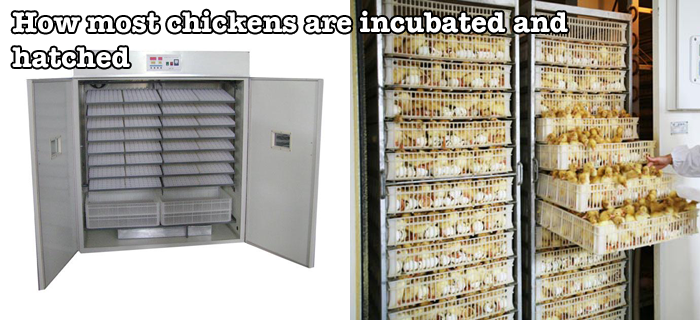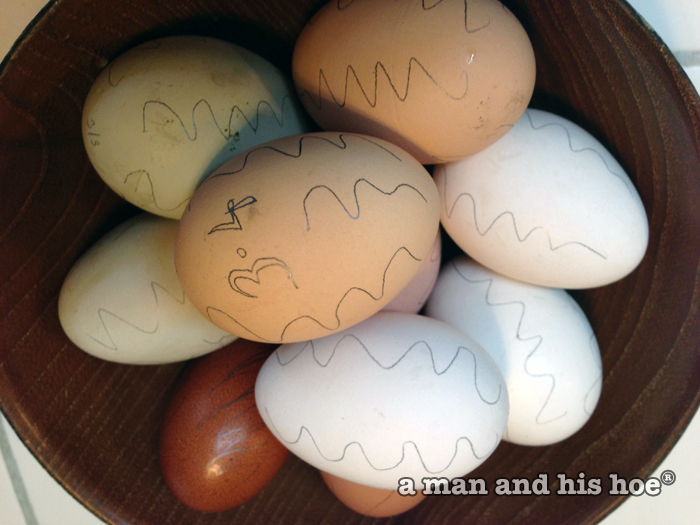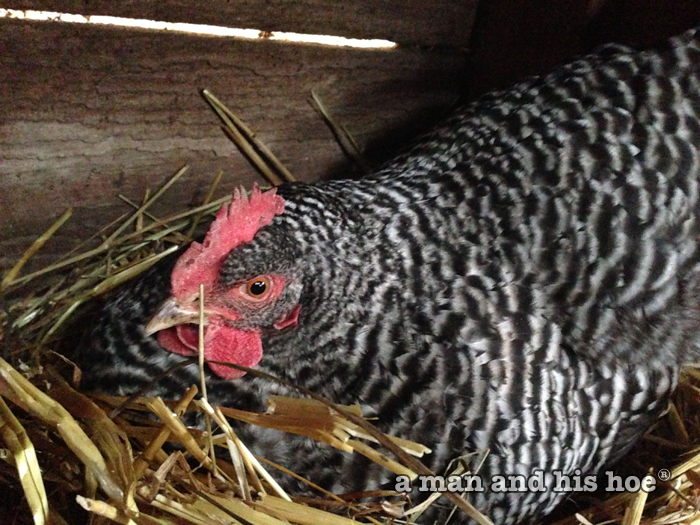Your cart is currently empty!
First Brood?

Most chickens are hatched in large commercial incubators. Here at a man and his hoe® we do things very differently.
Even though it is still cool, spring is in the air. The robins are active, calling for mates. The thimble berries and raspberries are budding out. And one of my hens went broody a few days ago. Tonight I placed a full set of eggs underneath her for her to hatch. In three weeks, around March 26, if all goes well, they should hatch.
So what is this bowl of marked eggs for? They are for the broody hen to incubate and hatch. Before placing eggs under a broody hen, I mark the eggs so I can tell later if another hen has added any eggs to the clutch. A broody hen will leave her nest once a day to eat, get some exercise, and do her business. While she is away, another hen may add an egg to the clutch. But such additional eggs need to be removed as they won’t hatch at the same time as the original clutch. By marking the eggs at the start, it’s easy to spot any unwanted new eggs

And here is the brooding hen.

So why go to all the bother of hatching chicks under a broody hen? What chicken farmer in this day and age does this? Wouldn’t it be much cheaper and easier just to use an incubator or purchase chicks from a hatchery?
I do it for the chicks and their mothers. In an incubator, the chicks don’t get to listen to their mother’s heartbeat as they develop. They don’t get to hear her soft calls as their hatching day approached. And after they hatch, they get to cuddle and dry out under their mother’s warm breasts, and get to make their first steps out into the world under her watchful. At night they get to sleep under the warmth of her body and in total darkness, not under heat lamps like most chicks.
And the hens, when they go broody, not getting to hatch a clutch of eggs can be upsetting. They will sit and sit and sit until they finally give up after four or five weeks. Some are visibly upset when they spend all that time and end up without a clutch of chicks to raise. Many hens have a strong desire to hatch and rear chicks. Talking about a sense of fulfillment with chickens is perhaps a stretch, but when you watch a mother hen worrying about and carrying for her chicks, it is so endearing. Instinct no doubt drives this, but when the instinct is this strong, isn’t it wrong to deny its expression?
Modern agriculture has stopped considering the animals it raises as living creatures with feelings and desires. The attitude is to do whatever will produce the most eggs and meat at the lowest cost possible. But do you really want to purchase eggs and chicken from producers who have such little regard for the animals under their care?
Leave a Reply
You must be logged in to post a comment.